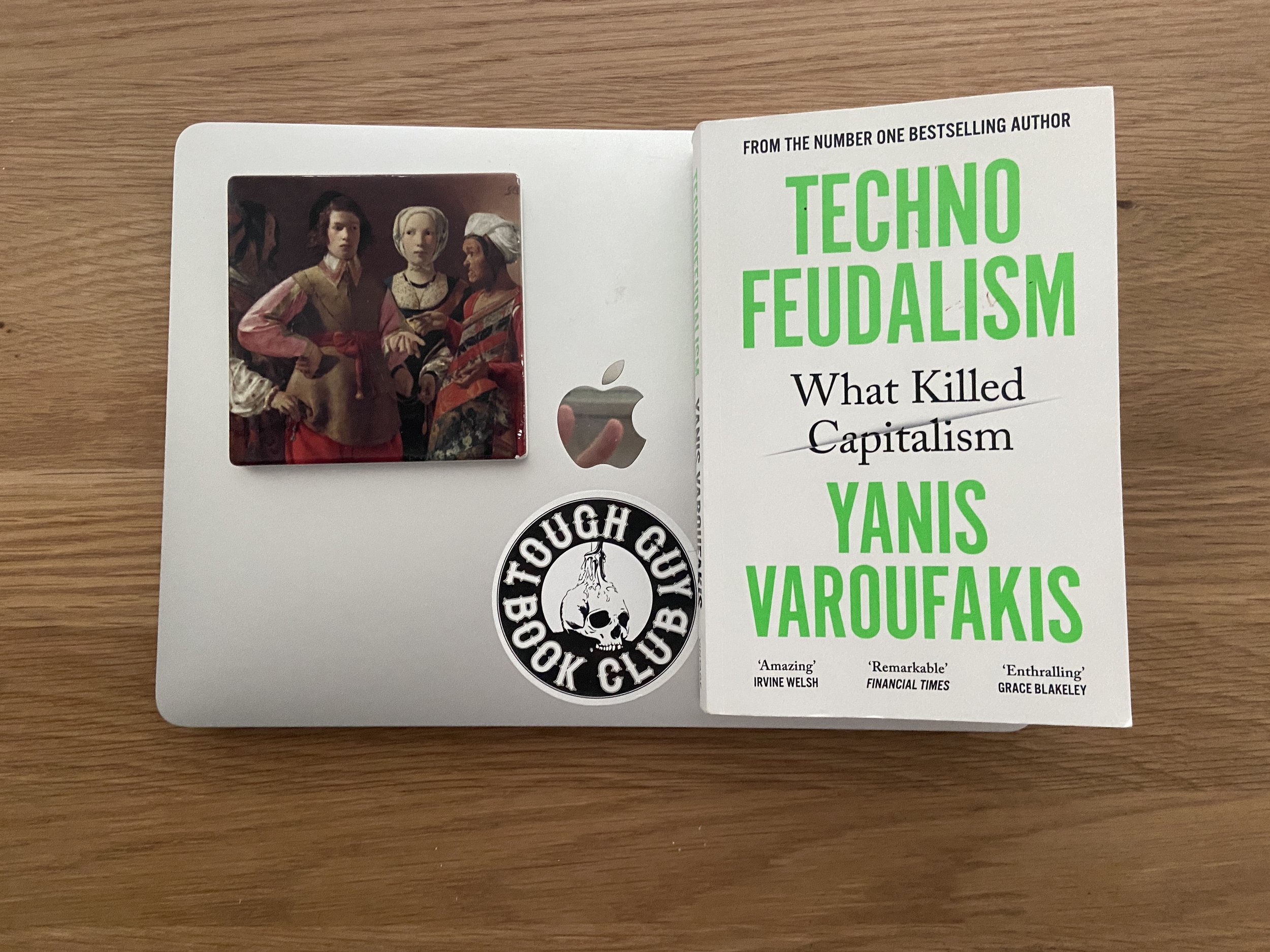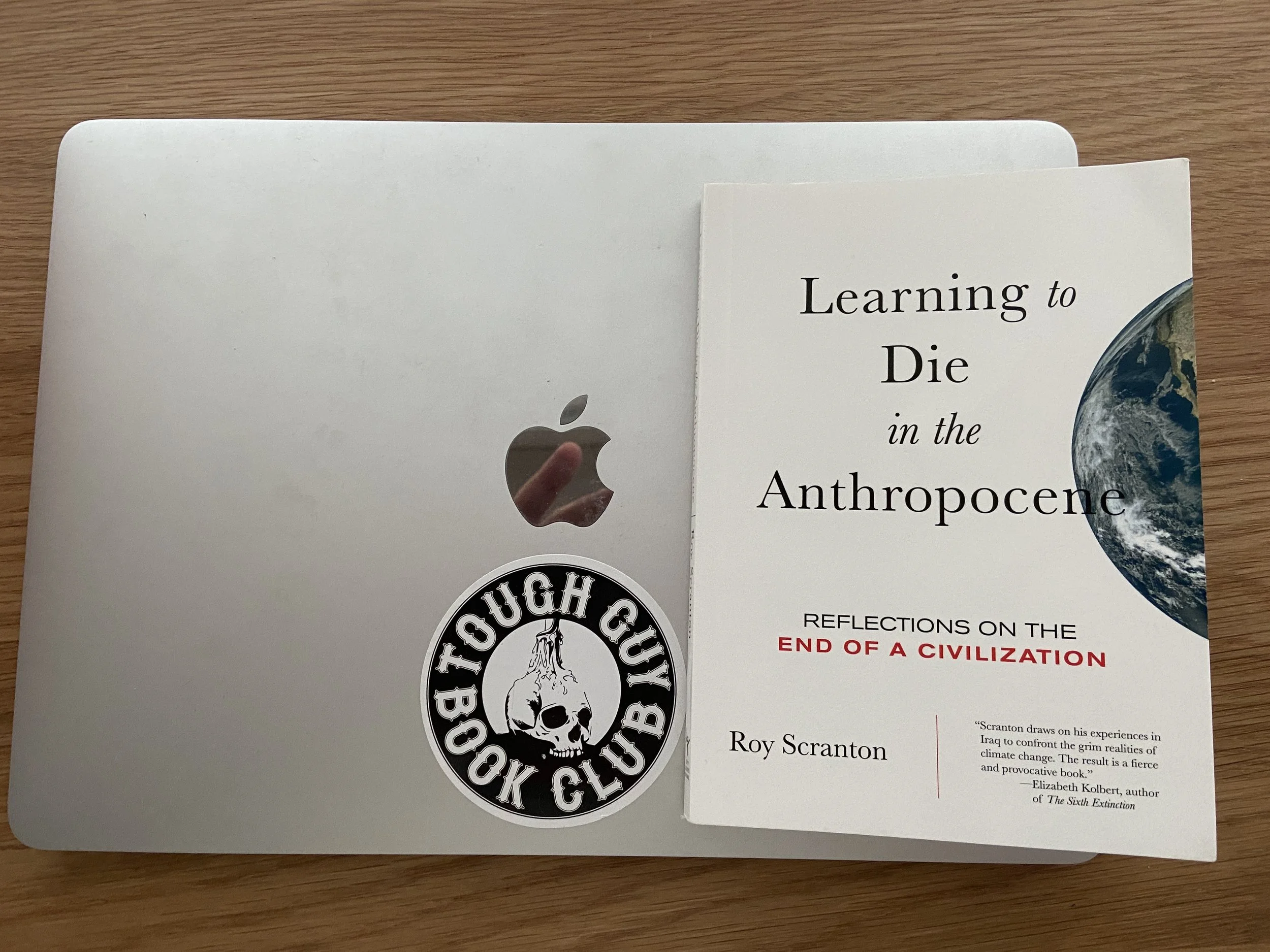Technofeudalism
Technofeudalism What Killed Capitalism by Yanis Varoufakis
You should read this book. And read it right now. And if you do, depending on how much you agree with Varoufakis’s viewpoint you will either,
a/ be ready to take up arms,
b/ be depressed and resigned or
c/ be laughing at the silliness of his concept and analysis.
Varoufakis is an economics professor and was the Finance minister of Greece during some of the period of the 2009 - 2018 Greek Government Debt Crisis when the IMF forced austerity measures on the country in return for financial bailouts. He heads up the left wing DiEM25 organisation.
In Technofeudalism, the prolific Varoufakis puts forward his hypothesis that Capitalism is dead and what is emerging now as the global financial system in the Western World is Technofeudalism. By this he means that we are now in an era that replicates medieval feudalism with a modern twist. He has written a number of books around the dangers and excesses of late-stage capitalism so he is not afraid to pick a few fights and take some controversial positions around deficits, austerity programs etc. However he always tries to keep the terminology simple and relatable with a goal of everyone understanding the economy because it is everyone’s, not just the economists, big business, banks and government.
In this book he does this by constructing the book as a letter to his recently passed father, outlining Capitalism’s evolution from the 1960s advertising boom, through Wall Street in the 1980s, to the 2008 financial crisis and the pandemic. He argues that that huge tech companies like Apple, Facebook, and Amazon have changed the economy so much post 2008 that it now resembles Europe’s medieval feudal system. Basically, the tech giants are the lords, and we are now all peasants working for them through our use of their products, apps, and software.
As Wired Magazine summarised in their April 2024 article,
“To Varoufakis, every time you post on X, formerly Twitter, you’re essentially toiling Elon Musk’s estate like a medieval serf. Musk doesn't pay you. But your free labour pays him, in a sense, by increasing the value of his company. On X, the more active users there are, the more people can be shown advertising or sold subscriptions. On Google Maps, he argues, users improve the product—alerting the system to traffic jams on their route.”
And of course, the more you use these apps the more their algorithms know what you react to and of course better prepare the offer that is fed back to you. You are working for them, and are the product , the buyer, and the consumer. The feudal comparison wasn’t completely his idea, and the concept has had different names. “But Technofeudalism is Varoufakis’s attempt to introduce the idea to a wider audience.”
And that it does. It is easy to understand as Varoufakis has been deliberately minimal with the economic jargon and I found the book a different and quite horrifying take on where the world is going with, if you agree with the writer, our almost universal if unthinking, active assent and cooperation. Part of the reason for this, Varoufakis argues, is that to us in the western world democracy and capitalism go hand in hand and to imagine a world without democracy is easy i.e. Communist China but a world without what we see as capitalism is almost impossible to visualise. Yet as it exists now capitalism at its savage destructive extreme is only a recent development. In fact, regardless of your thoughts about Varoufakis’s dark vision of the future, his explanation of how capitalism came to be, and his descriptions of its evolutionary stages are useful and entertaining. As to why what he is talking about now is to him not just another evolution in capitalism, but something new, I will leave to him to explain.
So, are we all ruined? Varoufakis argues that it is not too late but obviously the change would be massively disruptive and difficult against the establishment. His thought process linking these few incredibly powerful cooperations along with their Chinese equivalents to political power has even stronger resonance given the involvement of Elon Musk in Trump’s re-election and upcoming presidency. Varoufakis has a broad brushstrokes plan, but I must admit when reading it that it sounded great, but to implement it would require the kind of worldwide civilisation change that the Industrial Revolution and the Data Revolution has already wrought. I like the optimism that this time we would keep it in the hands of the people for the people, but that just ignores our worst natures.
Read it and see what you think.
Technofeudalism
Yanis Varoufakis
Vintage 2024
282PP






